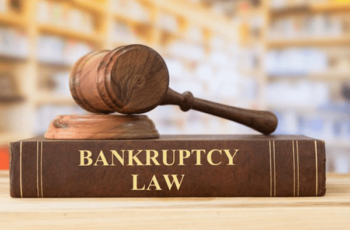Key Takeaways From CIGA, 2020
Introduction
Recently, the United Kingdom has enforced a legislative Act that shall reform the current insolvency legislative framework in their nation. The Corporate Insolvency and Governance Act, 2020 (CIGA) tries to bring relief to those companies that are affected by the extensive slowdown within their supply chain leading to the condition of insolvency.
An introductory text to the Act which defines its scope and objective states that this Act is “an Act to make provision about companies and other entities in financial difficulty; and to make temporary changes to the law relating to the governance and regulation of companies and other entities.”[1]
As this Act tries to bring significant reforms to the English Insolvency laws, the reforms which have been brought are the need of the hour as these reforms have been instituted to reduce the financial stress of the Companies and their potential risk of entering the state of insolvency during the times of the pandemic. Through this Act, temporary and permanent reformatory measures are introduced that will act as a safeguard for the insolvent companies against aggressive creditor actions.
This Act has been hailed by sectors like hospitality and leisure, that have been economically succumbed due to the pandemic[2].
In this article, a brief analysis has been made of the reforms brought forward through this Act.
Reforms Introduced Through This Act
Moratorium
Before this Act, there was no such provision in the restructuring procedures in the UK which the Directors could enforce in order to rescue their company with the benefit of a moratorium on credit Actions against the company. Closest to moratorium was the ‘Company Voluntary Arrangement’ (CVA) as a restructuring tool which helps in compromising lease liabilities of underperforming assets majorly in hospitality and leisure services.[3]
However, the procedure of CVA is very complicated and has several limitations and also acts as a disadvantage in some circumstances, like when the board exits from the administration even before the commencement of CVA’s which in turn tarnishes the image of the company and reduces its value.
Nonetheless, this Act has introduced the provision of a standalone moratorium procedure in which the Directors do not have to lose control of the company while they take measures to rescue the company as a going concern. The Directors can seek a temporary moratorium in case they are unable to pay debts and by filing other relevant documents that are mentioned in section A6 of Chapter 2 of the Act.
Similarly, as per Section A9 of the Act, the initial period of the moratorium is a period of 20 business days and it comes to an end of the initial period unless it is extended as per subsection (3) of section A9 or comes to and as per sub-section (4) of Section A(9).
However, prima facie the control of the company is in the hand of the Directors during the period of moratorium, nonetheless, the whole process is supervised by an independent monitor who is a qualified insolvency practitioner. As per section A34 and A35, the monitor in relation to the moratorium is an officer of the court who must monitor the affairs of the company for the purpose of forming a view as to whether the seeking of the moratorium will result in the rescue of a company as a going concern or not.
The main objective to add to this provision of a moratorium is to provide protection to the company from any adverse measures taken by the creditor during this time when the Directors are trying to rescue and restructure their company. As mentioned, during the period of moratorium, the creditors cannot petition for winding up the affairs of the company (Section A20), But, the company can borrow and incur credits and may grant security over the property provided they disclose that there is a moratorium and they have taken the consent of a monitor (Section A26).
The company with the permission of the court can also dispose of goods that are in possession of the company under a hire-purchase agreement (Section A32). Section A18 deals with the overview and construction of references to payment holidays. All these measures and provisions are introduced to ensure that the Directors have enough time to maximize the revival chances of its company during the Covid-19 crisis and give them breathing space to take necessary actions.
Temporary Suspension of Liability of Wrongful Trading
Currently, under Section 214 of the Insolvency Act of 1986, wrongful trading is a civil wrong.[4] Basically, wrongful trading is a statutory offense in which the creditors could recover their money from the Directors in case of irresponsible trading or mismanagement of an insolvent company or where Directors did not take the necessary steps to minimize the potential loss to the company’s creditors.
Through this provision, the creditors can recover money from the Directors who wilfully and intentionally traded in an irresponsible manner leading to an increase in debts to the said creditors.[5]
There is however a temporary suspension to the rule of wrongful trading. From 1st March, 2020 to 30th September, 2020, Directors would not be held personally liable for this offense. The main intention of the Government in implementing this provision was to provide a breathing space to the Directors during the pandemic so that the company could continue its trading affairs irrespective of the risk of incurring any potential personal liability in such an event that the company turns out to be insolvent.
However, this suspension does not act as a blanket-ban but certainly, this temporary provision will help the Directors to handle the financial affairs of the company to the best interest possible.[6]
Restriction on Winding-up Petitions and Orders
As per Section 124 of the Insolvency Act of 1986[7], an application for winding up or a winding petition against a registered company can be presented by the creditors before the court on suitable grounds. However, through this Act, provision has been made which temporarily restricts the creditors from presenting a winding-up petition on the basis of an unsatisfied statutory demand made between the time frame of 27th April, 2020 and 30th September, 2020.
Nonetheless, it can only be presented if the creditor has reasonable grounds to believe that firstly, coronavirus has not had a financial effect on the company, and secondly, the company would have not been able to pay debts even if corona virus didn’t take place.
The burden of proof has been shifted onto the creditor to show that there was reasonable belief as far related to the two mentioned points. This provision is a timely move as it protects the tenant-landlord relationship in which the latter does not coerce the former for satisfying their rent payment obligations at least during such times.[8] Although this provision safeguards the interest of tenants, however, it makes the condition worse for the landlords and suppliers who are also facing a situation of being cash-strapped.
A New Restructuring Plan
Currently, as per the English law, there are two credit cooperation mechanisms available that are CVA (Company Voluntary Arrangement) and the Scheme of Arrangement (Part 26 of Companies Act, 2006).[9]
Through this Act, a new restructuring plan has been introduced as Part 26A of the Companies Act, 2006. In this plan, Directors will be able to propose a ‘Restructuring Plan’ to compromise the claim of creditors. This provision shall be made only applicable where conditions A and B (as detailed in the Act) are met in relation to a company.
As part of the ‘Restructuring Plan’, a new feature called the “cross-class cram down” has been introduced[10]. This feature allows the court to sanction the approval of a compromise or arrangement where dissenting classes of creditors or members are bound on certain conditions.
As the critics have mentioned, this provision of restructuring can help the companies that have been battered by the pandemic crisis as it would be a useful tool in providing a different treatment to different classes of creditors in different ways resulting in seeking to compromise the claim of secured creditors, unsecured creditors and members as such.
Conclusion
As the world we know is recurring from the pandemic at one end, the Governments on the other are trying to mitigate its effect in the best way possible.
This timely legislative action does bring about a sigh of happiness because this Act and the reforms introduced by it can also be taken as an aid by different nations to come up with their own laws and legislations which can boost their economies and can help these nations to fight against this financial crisis.
However, developing countries can also introduce or amend their legislations by adding temporary provisions like this so that immediate relief can be provided[11].
In conclusion, even though this Act is a step towards changing and relaxing the dimensions of Insolvency in UK, the pandemic has made aware that not just the people, but the markets need to be prepared too for something so drastic yet uncertain on many levels and having such new and dynamic provisions even though they are temporary in nature, such as these, is definitely a way forward to uphold the market structure at such testing times.
[1] https://www.legislation.gov.uk/ukpga/2020/12/introduction/enActed
[2] https://www.lexology.com/library/detail.aspx?g=14439c31-6da8-4de9-9196-4bccca9fe188
[3] https://www.nortonrosefulbright.com/en/knowledge/publications/5ac21a15/the-uk-corporate-insolvency-and-governance-Act-2020
[4] https://www.legislation.gov.uk/ukpga/1986/45/section/214
[5] https://www.companydebt.com/faqs/what-is-wrongful-trading/
[6] https://www.pillsburylaw.com/en/news-and-insights/corporate-insolvency-governance-Act-2020-UK.html
[7] https://www.legislation.gov.uk/ukpga/1986/45/section/124
[8] https://www.accountancyage.com/2020/07/20/rise-in-insolvency-and-creditor-Action-expected/
[9] https://www.pillsburylaw.com/en/news-and-insights/corporate-insolvency-governance-Act-2020-UK.html
[10] https://www.mondaq.com/uk/shareholders/960880/corporate-insolvency-and-governance-Act
[11] https://www.livemint.com/opinion/online-views/uk-s-insolvency-reforms-can-show-india-the-way-11595430383515.html
https://www.legislation.gov.uk/ukpga/2020/12/introduction/enActed









 He holds a Bachelor’s and Master’s Degree in Corporate Secretaryship and a Degree in Law. He is a Fellow member of the Institute of Company Secretaries of India and an Associate Member of the Corporate Governance Institute, UK and Ireland. He has also completed a program from ISB on ‘Value Creation through Mergers and Acquisitions.
He holds a Bachelor’s and Master’s Degree in Corporate Secretaryship and a Degree in Law. He is a Fellow member of the Institute of Company Secretaries of India and an Associate Member of the Corporate Governance Institute, UK and Ireland. He has also completed a program from ISB on ‘Value Creation through Mergers and Acquisitions. Mr P Muthusamy is an Indian Revenue Service (IRS) officer with an outstanding career of 30+ years of experience and expertise in all niche areas of Indirect Taxes covering a wide spectrum including GST, Customs, GATT Valuation, Central Excise and Foreign Trade.
Mr P Muthusamy is an Indian Revenue Service (IRS) officer with an outstanding career of 30+ years of experience and expertise in all niche areas of Indirect Taxes covering a wide spectrum including GST, Customs, GATT Valuation, Central Excise and Foreign Trade. During his judicial role, he heard and decided a large number of cases, including some of the most sensitive, complicated, and high-stake matters on insolvency and bankruptcy, including many cases on resolution plans, shareholder disputes and Schemes of Amalgamation, De-mergers, restructuring etc.,
During his judicial role, he heard and decided a large number of cases, including some of the most sensitive, complicated, and high-stake matters on insolvency and bankruptcy, including many cases on resolution plans, shareholder disputes and Schemes of Amalgamation, De-mergers, restructuring etc., Ms. Sarah Abraham has been enrolled with the Bar Council of Tamil Nadu since 1998. Her areas of practice include Shareholder Disputes, Corporate Compliances, Mergers and Acquisitions, Private Equity/ Venture Capital Agreements and allied disputes, Information Technology Contracts, Intellectual Property, General Commercial Agreements, Litigation, Arbitration and Mediation.
Ms. Sarah Abraham has been enrolled with the Bar Council of Tamil Nadu since 1998. Her areas of practice include Shareholder Disputes, Corporate Compliances, Mergers and Acquisitions, Private Equity/ Venture Capital Agreements and allied disputes, Information Technology Contracts, Intellectual Property, General Commercial Agreements, Litigation, Arbitration and Mediation. A K Mylsamy is the Founder, Managing Partner and the anchor of the firm. He holds a Degree in law and a Degree in Literature. He is enrolled with the Bar Council of Tamil Nadu.
A K Mylsamy is the Founder, Managing Partner and the anchor of the firm. He holds a Degree in law and a Degree in Literature. He is enrolled with the Bar Council of Tamil Nadu. M Subathra holds a Degree in law and a Master’s Degree in International Business Law from the University of Manchester, United Kingdom. She is enrolled with the Bar Council of Tamil Nadu.
M Subathra holds a Degree in law and a Master’s Degree in International Business Law from the University of Manchester, United Kingdom. She is enrolled with the Bar Council of Tamil Nadu. Mr. K Rajendran is a former Indian Revenue Service (IRS) officer with a distinguished service of 35 years in the Indirect Taxation Department with rich experience and expertise in the fields of Customs, Central Excise, Service Tax and GST. He possesses Master’s Degree in English literature. Prior to joining the Department, he served for the All India Radio, Coimbatore for a period of about 4 years.
Mr. K Rajendran is a former Indian Revenue Service (IRS) officer with a distinguished service of 35 years in the Indirect Taxation Department with rich experience and expertise in the fields of Customs, Central Excise, Service Tax and GST. He possesses Master’s Degree in English literature. Prior to joining the Department, he served for the All India Radio, Coimbatore for a period of about 4 years. An MBA from the Indian Institute of Management, Calcutta, and an M.Sc. in Tourism Management from the Scottish Hotel School, UK, Ashok Anantram was one fo the earliest IIM graduates to enter the Indian hospitality industry. He joined India Tourism Development Corporation (ITDC) in 1970 and after a brief stint proceeded to the UK on a scholarship. On his return to India, he joined ITC Hotels Limited in 1975. Over the 30 years in this Organisation, he held senior leadership positions in Sales & Marketing and was its Vice President – Sales & Marketing. He was closely involved in decision making at the corporate level and saw the chain grow from a single hotel in 1975 to a very large multi-brand professional hospitality group.
An MBA from the Indian Institute of Management, Calcutta, and an M.Sc. in Tourism Management from the Scottish Hotel School, UK, Ashok Anantram was one fo the earliest IIM graduates to enter the Indian hospitality industry. He joined India Tourism Development Corporation (ITDC) in 1970 and after a brief stint proceeded to the UK on a scholarship. On his return to India, he joined ITC Hotels Limited in 1975. Over the 30 years in this Organisation, he held senior leadership positions in Sales & Marketing and was its Vice President – Sales & Marketing. He was closely involved in decision making at the corporate level and saw the chain grow from a single hotel in 1975 to a very large multi-brand professional hospitality group. Mani holds a Bachelor Degree in Science and P.G. Diploma in Journalism and Public Relations. He has a rich and varied experience of over 4 decades in Banking, Finance, Hospitality and freelance Journalism. He began his career with Andhra Bank and had the benefit of several training programs in Banking.
Mani holds a Bachelor Degree in Science and P.G. Diploma in Journalism and Public Relations. He has a rich and varied experience of over 4 decades in Banking, Finance, Hospitality and freelance Journalism. He began his career with Andhra Bank and had the benefit of several training programs in Banking. Mr. Kailash Chandra Kala joined the Department of Revenue, Ministry of Finance as ‘Customs Appraiser’ at Mumbai in the year 1993.
Mr. Kailash Chandra Kala joined the Department of Revenue, Ministry of Finance as ‘Customs Appraiser’ at Mumbai in the year 1993.
 S Ramanujam, is a Chartered Accountant with over 40 years of experience and specialization in areas of Corporate Tax, Mergers or Demergers, Restructuring and Acquisitions. He worked as the Executive Vice-President, Group Taxation of the UB Group, Bangalore.
S Ramanujam, is a Chartered Accountant with over 40 years of experience and specialization in areas of Corporate Tax, Mergers or Demergers, Restructuring and Acquisitions. He worked as the Executive Vice-President, Group Taxation of the UB Group, Bangalore. K K Balu holds a degree in B.A and B.L and is a Corporate Lawyer having over 50 years of Legal, Teaching and Judicial experience.
K K Balu holds a degree in B.A and B.L and is a Corporate Lawyer having over 50 years of Legal, Teaching and Judicial experience. Justice M. Jaichandren hails from an illustrious family of lawyers, academics and politicians. Justice Jaichandren majored in criminology and then qualified as a lawyer by securing a gold medal. He successfully practiced in the Madras High Court and appeared in several civil, criminal, consumer, labour, administrative and debt recovery tribunals. He held office as an Advocate for the Government (Writs Side) in Chennai and was on the panel of several government organizations as senior counsel. His true passion lay in practicing Constitutional laws with focus on writs in the Madras High Court. He was appointed Judge, High Court of Madras in December 2005 and retired in February 2017.
Justice M. Jaichandren hails from an illustrious family of lawyers, academics and politicians. Justice Jaichandren majored in criminology and then qualified as a lawyer by securing a gold medal. He successfully practiced in the Madras High Court and appeared in several civil, criminal, consumer, labour, administrative and debt recovery tribunals. He held office as an Advocate for the Government (Writs Side) in Chennai and was on the panel of several government organizations as senior counsel. His true passion lay in practicing Constitutional laws with focus on writs in the Madras High Court. He was appointed Judge, High Court of Madras in December 2005 and retired in February 2017. S Balasubramanian is a Commerce and Law Graduate. He is a member of the Delhi Bar Council, an associate Member of the Institute of Chartered Accountants of India, the Institute of Company Secretaries of India and Management Accountants of India.
S Balasubramanian is a Commerce and Law Graduate. He is a member of the Delhi Bar Council, an associate Member of the Institute of Chartered Accountants of India, the Institute of Company Secretaries of India and Management Accountants of India.